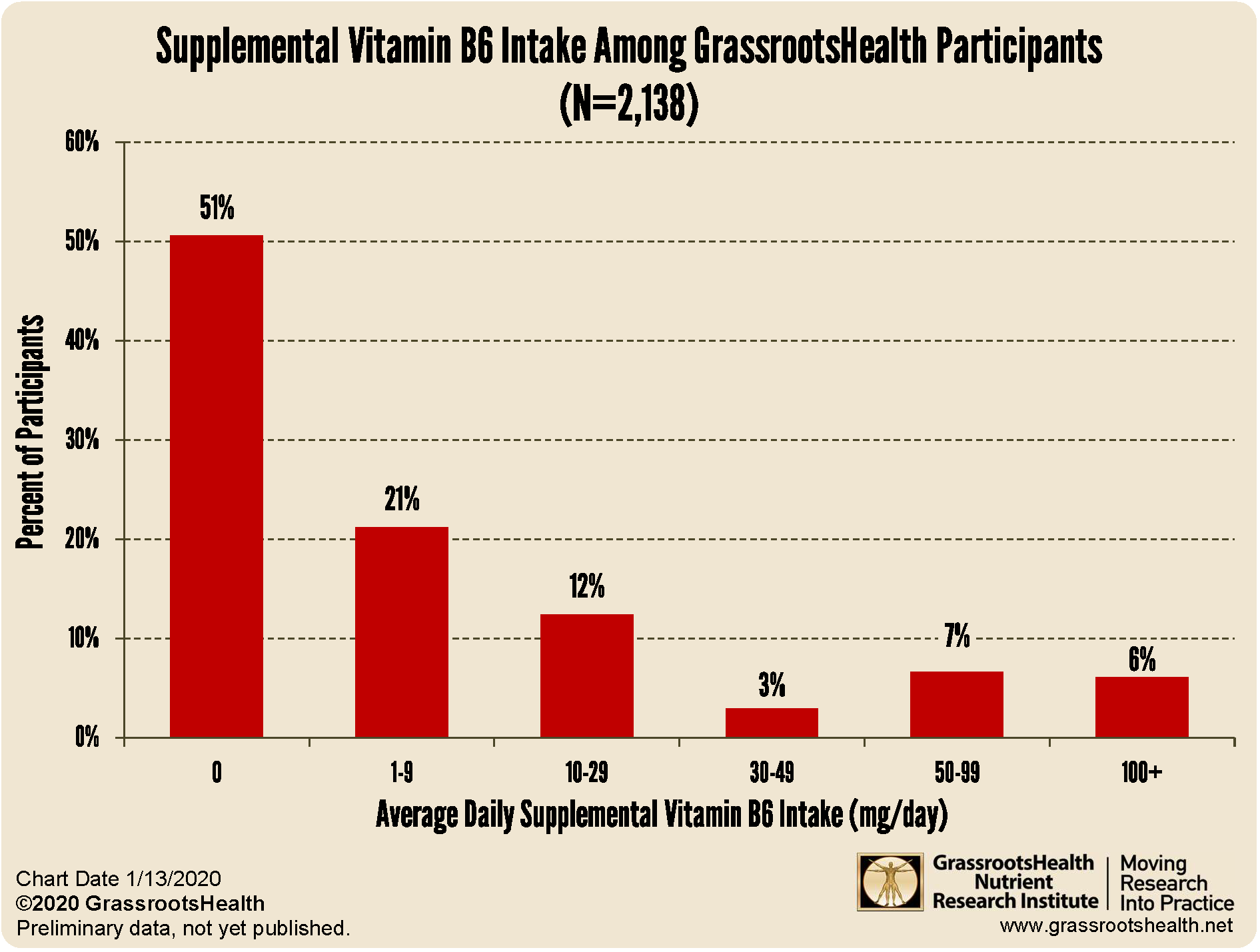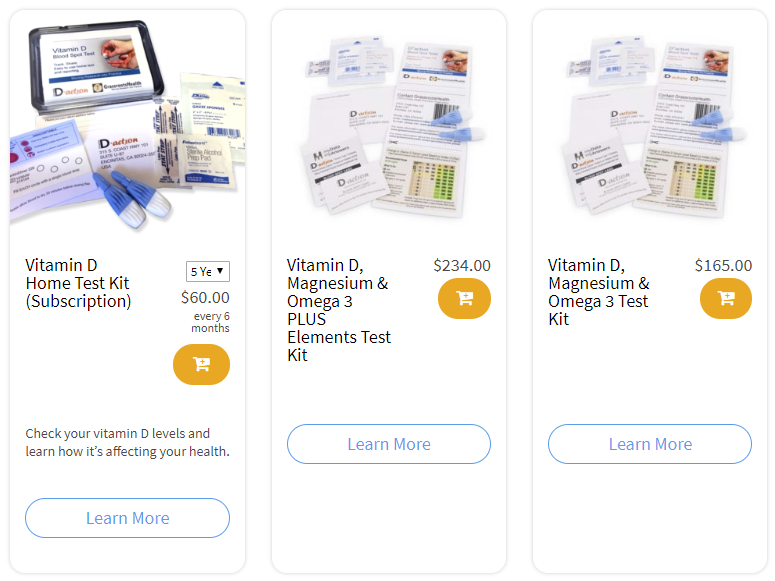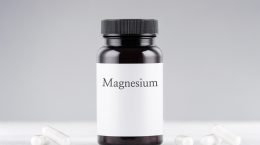Published on January 29, 2020
GrassrootsHealth collects information about supplemental intake amounts for a number of nutrients on its health and lifestyle questionnaire. In previous blogs we showed how much supplemental vitamin C, calcium, and vitamin K2 GrassrootsHealth participants report taking. In today’s blog we will summarize reported intake amounts of supplemental vitamin B6.
What is Vitamin B6?
 Vitamin B6 is a water-soluble vitamin found in fish, poultry, and nuts, as well as potatoes, bananas, and some refined grains. It is most known for helping to convert food into energy, making red blood cells, and maintaining normal blood levels of the amino acid homocysteine. Vitamin B6 may also play an important role in modulating inflammation and decreasing the risk of cardiovascular disease and other inflammatory diseases. The current RDA for vitamin B6 is 1.3 mg for adults up to age 50, and over 50 it is 1.5 mg for women and 1.7 mg for men. A lack of vitamin B6, while rare, can result in neurologic symptoms such as irritability, depression, and confusion. Signs of vitamin B6 deficiency include inflammation of the tongue, sores or ulcers of the mouth, and ulcers of the skin at the corners of the mouth. Alcohol may impair metabolism of vitamin B6, therefore alcoholics are at a higher risk of deficiency.
Vitamin B6 is a water-soluble vitamin found in fish, poultry, and nuts, as well as potatoes, bananas, and some refined grains. It is most known for helping to convert food into energy, making red blood cells, and maintaining normal blood levels of the amino acid homocysteine. Vitamin B6 may also play an important role in modulating inflammation and decreasing the risk of cardiovascular disease and other inflammatory diseases. The current RDA for vitamin B6 is 1.3 mg for adults up to age 50, and over 50 it is 1.5 mg for women and 1.7 mg for men. A lack of vitamin B6, while rare, can result in neurologic symptoms such as irritability, depression, and confusion. Signs of vitamin B6 deficiency include inflammation of the tongue, sores or ulcers of the mouth, and ulcers of the skin at the corners of the mouth. Alcohol may impair metabolism of vitamin B6, therefore alcoholics are at a higher risk of deficiency.
Vitamin B6 Intake Among GrassrootsHealth Participants
Among participants who reported a value for supplemental vitamin B6, 49% reported taking some and 51% reported not taking any. The chart below shows the distribution of average daily supplemental vitamin B6 intake amounts for over 2,000 participants.
Among those taking a vitamin B6 supplement, the median intake amount was 11 mg/day. A little less than half (43%) report taking less than 10 mg/day, about one-third (31%) report taking between 10 and 49 mg/day, and about one-fourth (26%) report taking 50 mg/day or more. In a following blog, we will explore whether supplemental vitamin B6 intake affects vitamin D levels.
Are your nutrient levels helping with your inflammation levels? Do you have cardiovascular, cognitive, or other inflammatory conditions that may be related to nutrient deficiencies?
Make sure you know your vitamin D level, and take steps to keep it within a target of 40-60 ng/ml or 100-150 nmol/L! Through GrassrootsHealth Nutrient Research Institute, you can also test your essential elements magnesium, copper, zinc and selenium, toxins such as lead, mercury and cadmium, as well as your omega-3 levels, inflammation levels and thyroid stimulating hormone (TSH) level. Find out your levels today! Log on to the test selection page (click the link below) to get your tests and see for yourself if your levels can be improved.
Make sure you track your results before and after, about every 6 months!
Click Here to Access the Test Page
How can I track my nutrient intake and levels over time?
To help you track your supplement use and nutrient levels, GrassrootsHealth has created an online tracking system called myData-myAnswers. For each specific supplement, you can track what days you take it, how much, and many other details. This will help you know your true supplemental intake and what patterns of use work for you to reach and maintain optimum nutrient levels. Check it out today!








